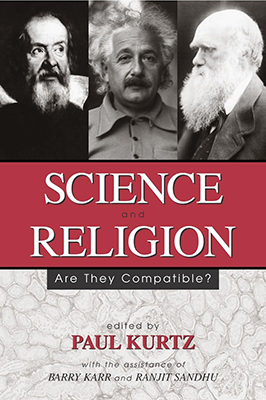Science And Religion: Are They Compatible?
“Science and Religion: Are They Compatible?” by Paul Kurtz is a critical examination of the relationship between science and religion. Here’s a summary:
Introduction to the Debate: Kurtz begins by acknowledging the long-standing debate over the compatibility of science and religion. He asserts that while both seek to understand the world, they do so through fundamentally different methods and assumptions.
Methodological Differences: Kurtz explores the methodological differences between science and religion. Science relies on empirical evidence, reason, and skepticism to investigate natural phenomena, while religion often appeals to faith, revelation, and tradition to understand the supernatural.
Conflict Thesis: Kurtz discusses the conflict thesis, which posits that science and religion are inherently incompatible and have historically been in conflict. He examines historical examples of conflicts between science and religion, such as the Galileo affair, to support this view.
Accommodationist Views: Kurtz considers accommodationist views that seek to reconcile science and religion. He discusses various attempts to harmonize scientific and religious beliefs, such as theistic evolution and the idea of non-overlapping magisteria (NOMA), proposed by Stephen Jay Gould.
Critical Analysis: Kurtz critically evaluates accommodationist arguments, questioning their coherence and validity. He argues that attempts to reconcile science and religion often involve compromising the principles of either science or religion, leading to inconsistencies and intellectual dishonesty.
Humanism as an Alternative: Kurtz proposes humanism as an alternative worldview that embraces science, reason, and ethics without the need for supernatural beliefs. He argues that humanism offers a coherent and consistent framework for understanding the world and living a meaningful life.
Conclusion: Kurtz concludes by reaffirming the fundamental differences between science and religion and arguing that attempts to reconcile them are ultimately futile. He advocates for a secular humanist approach that prioritizes scientific inquiry, critical thinking, and ethical principles.
Overall, “Science and Religion: Are They Compatible?” presents a nuanced analysis of the debate over the compatibility of science and religion, ultimately advocating for a secular humanist perspective that prioritizes reason, evidence, and ethics.

